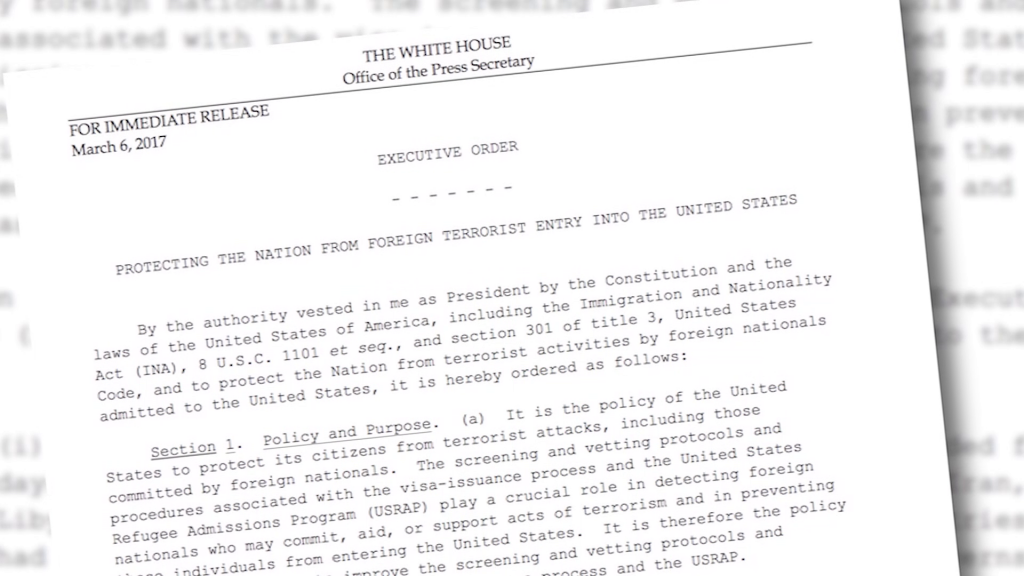US Travel ban: What’s different and who will it affect?
Attorney General Bob Ferguson is claiming victory after President Donald Trump rescinded his previous executive order banning travel to the United States from seven Muslim-majority countries and replaced it with a much narrower ban.
The order is expected to suspend immigration from Iran, Libya, Syria, Somalia, Sudan and Yemen for 90 days. The Iraqi government has reportedly agreed to cooperate with the US government when it wants to expel Iraqi citizens.
The new travel ban means that people from the affected countries who are outside the U.S. and without a valid visa from March 16 onwards will not be permitted to enter the country. It was removed from the list because it has given “firm commitments” about increased cooperation in terms of information that will enhance the ability of the USA to vet or screen Iraqi nationals, a Homeland Security official told the media. They will no longer be singled out, addressing an issue the courts had with targeting Syrian refugees.
“Despite its cosmetic revisions, this new order is still a Muslim ban, and it is still unconstitutional”, said Michigan ACLU director Kary Moss in a statement. Also, dual nationals with foreign passports, green card holders, diplomats, legal permanent residents of the United States and those who have been granted asylum or refugee status are exempted from the ban.
Mr Trump’s new ban also means that the US’s refugee admissions programme will be halted for the next 120 days. Donald Trump signed in front of the press, but there was less fanfare and there was more attention in avoiding some of the legal hurdles that burned the first attempt.
Lawyers for America’s predominant civil rights organisation, the American Civil Liberties Union, have said they intend to challenge a revised executive order issued by the Trump administration.
The order comes after courts struck down key parts of a similar ban that Trump signed last month, and the White House wrote the order with an eye to placating the judiciary.
Conway told Fox News that the order would take effect on March 16.
The previous order, which prevented immigrants from seven Muslim-majority nations from entering the US, drew legal challenges as well as criticism from some multinational corporations for causing personnel glitches. The new order does not “eliminate the basic constitutional problem we saw in the first executive order, which is discrimination on the basis of religion”. Immigrants en route to the United States from the seven majority-Muslim countries named in the initial order were detained at airports, and White House guidance at the time suggested permanent USA residents were also targeted. This time though those who already have a valid visa will be allowed in.
For Senate Democratic leader, Chuck Schumer of NY, the revised version of the order is a “watered-down ban” that was still “meanspirited and un-American”. Critics had accused the administration of adding such language to help Christians get into the United States while excluding Muslims. This provision is not in the new order.








